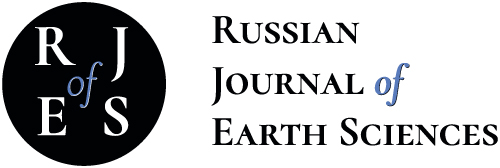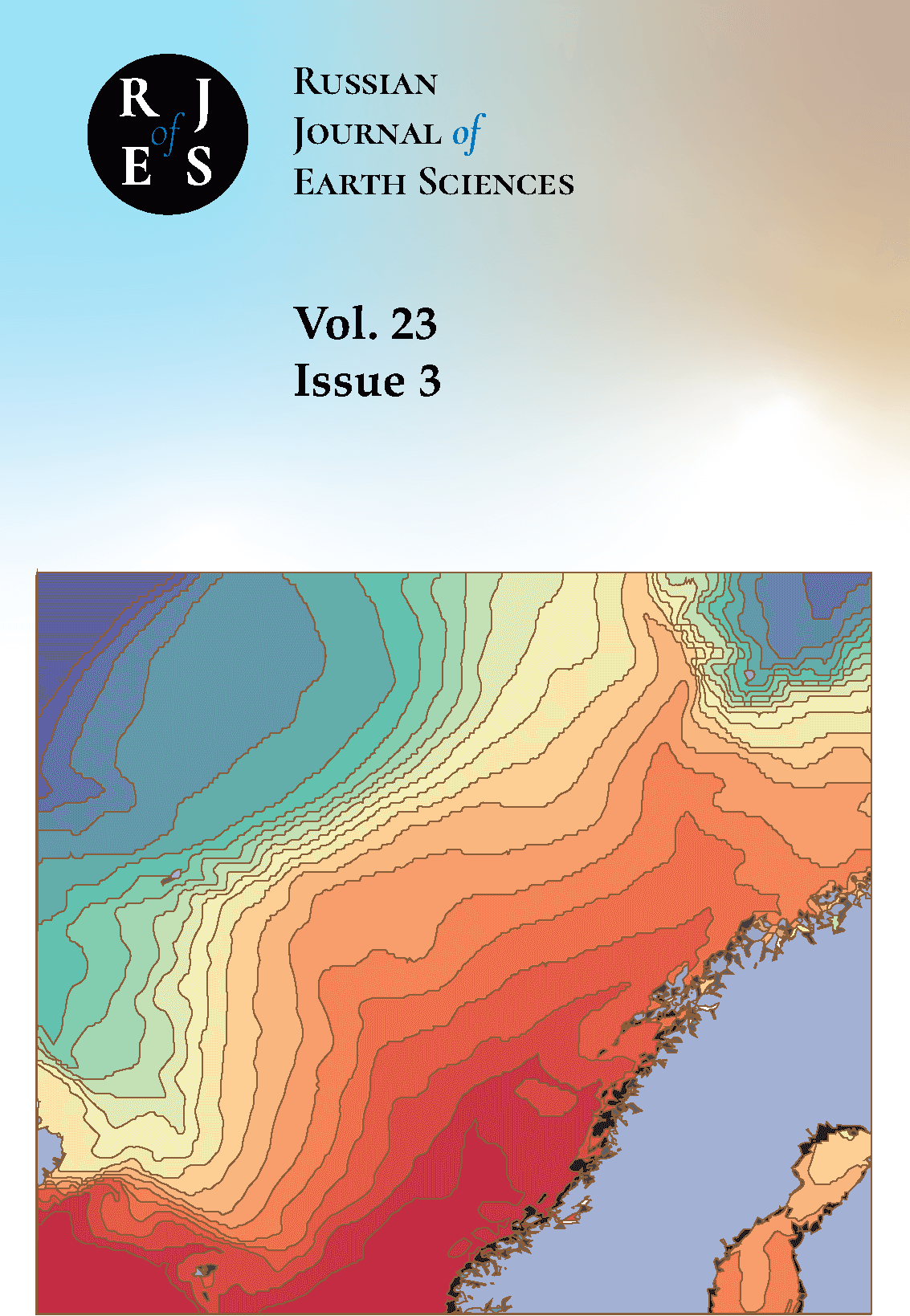doctoral candidate from 01.01.2011 to 01.01.2014
Federal State Budgetary Institution of Science The Complex Scientific Research Institute. H.I. Ibragimov of the Russian Academy of Sciences (Chief Researcher)
from 01.01.2018 until now
Grozny, Russian Federation
Institute of Oil and Gas, Grozny State Petroleum Technological University. acad. M.D. Millionshchikov
Institute of Oil and Gas, Grozny State Petroleum Technological University. acad. M.D. Millionshchikov
UDC 379.85
UDC 502/504
UDC 55
UDC 550.34
UDC 550.383
CSCSTI 37.01
CSCSTI 37.15
CSCSTI 37.25
CSCSTI 37.31
CSCSTI 38.01
CSCSTI 36.00
CSCSTI 37.00
CSCSTI 38.00
CSCSTI 39.00
CSCSTI 52.00
Russian Classification of Professions by Education 05.00.00
Russian Library and Bibliographic Classification 26
BISAC SCI SCIENCE
This article analyzes modern concepts and approaches of the works of Russian and foreign researchers to the development of ecological tourism as nature-oriented. The concept of mountain ecotourism should include the specific conditions of mountain ecosystems (ecological vulnerability to anthropogenic impact, the dynamics of landscape-forming processes, etc.). In the mountainous regions of Russia, favorable prerequisites exist for the development of various areas of ecotourism (apitourism, agrotourism, geological tourism, scientific tourism, etc.), both within and outside specially protected natural areas. A strengths, weaknesses, opportunities and threats (SWOT) analysis on the example of the mountainous regions of the North-Eastern Caucasus showed that there are many strengths and opportunities for the development of ecotourism within the boundaries of specially protected natural areas (unique natural complexes and objects, attractive natural landscapes, high biological diversity, the presence of endemics and relics in the structure of biodiversity, favorable climate, transport accessibility, significant labor resources, etc.). Weaknesses that hinder the development of ecotourism and possible threats (poor development of tourist infrastructure, organized tourist routes, equipped ecological trails, shortage of qualified personnel in the field of ecotourism, etc.) are also identified.
ecotourism, mountain regions, balanced development, prospects, biodiversity, innovations, threats, potential
1. Astanin, D. (2021), Evolutionary development of models ecotourism (on the example of management aspects tourist flows), CITISE, 30(4), 65-76, https://doi.org/10.15350/2409-7616.2021.4.07 (in Russian).
2. Baloch, Q. B., S. N. Shah, N. Iqbal, M. Sheeraz, M. Asadullah, S. Mahar, and A. U. Khan (2023), Impact of tourism development upon environmental sustainability: a suggested framework for sustainable ecotourism, Environmental Science and Pollution Research, 30(3), 5917-5930, https://doi.org/10.1007/s11356-022-22496-w.
3. Butche, J. (2007), Ecotourism, NGOs and development: A critical analysis, 208 pp., Routledge, London.
4. Chernaya, V. V., E. A. Blinova, B. I. Kochurov, and V. V. Maslennikova (2023), Creation of interstate scientific and educational ecosystem in the field of hunting science, fishery and ecological tourism, Human Capital. Scientific and practical journal, 3, 201-208, https://doi.org/10.25629/HC.2023.03.21 (in Russian).
5. Cros, H. D., and B. McKercher (2020), Cultural Tourism, 340 pp., Routledge, London.
6. Dabiev, D. F. (2022), Assessment of the development of the mountain regions of Russia, Mining Industry Journal (Gornay Promishlennost), (2/2022), 81-83, https://doi.org/10.30686/1609-9192-2022-2-81-83 (in Russian).
7. De Vos, A., G. S. Cumming, C. A. Moore, K. Maciejewski, and G. Duckworth (2016), The relevance of spatial variation in ecotourism attributes for the economic sustainability of protected areas, Ecosphere, 7(2), 1-19, https://doi.org/10.100 2/ecs2.1207. DOI: https://doi.org/10.1002/ecs2.1207; EDN: https://elibrary.ru/XYTBED
8. Decree of the Government of the Russian Federation of September 20, 2019 No. 2129-r (as amended on February 7, 2022) (2019), “On approval of the development of tourism in the Russian Federation for the period up to 2035”, https://docs.cntd.ru/document/561260503 (in Russian).
9. Fadafan, F. K., A. Soffianian, S. Pourmanafi, and M. Morgan (2022), Assessing ecotourism in a mountainous landscape using GIS-MCDA approaches, Applied Geography, 147, 102,743, https://doi.org/10.1016/j.apgeog.2022.102743.
10. Fennell, D. A. (2020), Ecotourism, 398 pp., Routledge, London.
11. Golubchikov, Y., and V. Kruzhalin (2021), Geotourism as a new object of study in Earth science, Life of the Earth, 43(3), 368-376, https://doi.org/10.29003/m2441.0514-7468.2020_43_3/368-376 (in Russian).
12. Gómez-Baggethun, E., E. Corbera, and V. Reyes-García (2013), Traditional Ecological Knowledge and Global Environmental Change: Research findings and policy implications, Ecology and Society, 18(4), 1-8, https://doi.org/10.5751/es06288-180472.
13. Grieves, M., M. Adler, and R. King (2014), To preserve the mountains and the community: indigenous ecotourism as a sustainable development strategy, Social Thought and Research, pp. 83-111.
14. Gryshchenko, O., V. Babenko, O. Bilovodska, T. Voronkova, I. Ponomarenko, and Z. Shatskaya (2022), “Green” tourism business as marketing perspective in environmental management, Global Journal of Environmental Science and Management, 8, 117-132, https://doi.org/10.22034/gjesm.2022.01.09. EDN: https://elibrary.ru/KDWQCU
15. Gulieva, S. N., E. A. Krichevets, and V. V. Kudrevich (2021), Formation of the regional tourist and recreational complex of the republic of Crimea and Sevastopol, Economy and management: Theory and Practice, 7(1), 5-16 (in Russian).
16. Han, H., J. Yu, and W. Kim (2018), Youth travelers and waste reduction behaviors while traveling to tourist destinations, Journal of Travel & Tourism Marketing, 35(9), 1119-1131, https://doi.org/10.1080/10548408.2018.1435335.
17. Higgins-Desbiolles, F. (2009), Indigenous ecotourism’s role in transforming ecological consciousness, Journal of Ecotourism, 8(2), 144-160, https://doi.org/10.1080/14724040802696031.
18. Huseynzade, A. I. (2023), Ecotourism potential and ways of its usage in the mountainous areas of Azerbaijan (The case of the Shaki-Zagatala economic-geographical region), Services in Russia and Abroad, 17(1(103)), 139-146, https://doi.org/10.5281/ZENODO.7793478.
19. Jax, K., and R. Rozzi (2004), Ecological theory and values in the determination of conservation goals: examples from temperate regions of Germany, United States of America, and Chile, Revista chilena de historia natural, 77(2), 349-366, https://doi.org/10.4067/S0716-078X2004000200012.
20. Jones, P. (2022), Tourism and Biodiversity: A Paradoxical Relationship, Athens Journal of Tourism, 9(3), 151-162, https://doi.org/10.30958/ajt.9-3-2.
21. Jurkus, E., R. Povilanskas, and J. Taminskas (2022), Current Trends and Issues in Research on Biodiversity Conservation and Tourism Sustainability, Sustainability, 14(6), 33-42, https://doi.org/10.3390/su14063342.
22. Kiper, T. (2013), Role of Ecotourism in Sustainable Development, in Advances in Landscape Architecture, pp. 773-802, InTech, https://doi.org/10.5772/55749.
23. Kosareva, N. V. (2020), Ecotourism in North Ossetia as a factor of sustainable development of the republic, Journal of Altai academy of economics and law, 1(5), 103-114, https://doi.org/10.17513/vaael.1117 (in Russian).
24. Kotlyakov, V. M., and Y. P. Badenkov (2010), Development of the mountain regions of Russia: on the 20th anniversary of the UN summit in Rio de Janeiro and the 10th anniversary of the mountain summit in Bishkek, Sustainable Development of Mountain Territories, 2(3), 14-21 (in Russian). EDN: https://elibrary.ru/MVLKZF
25. Kundius, V. A., and O. L. Mironova (2022), Development of eco-tourism in the Altai Territory, Grand Altai Research & Education, (2(18)), 26-35, https://doi.org/10.25712/astu.2410-485x.2022.02 (in Russian).
26. Lapochkina, V. V., N. V. Kosareva, and T. A. Adashova (2016), Environmental tourism in Russia: Trends in Development, International research journal, (5(47)), 100-105, https://doi.org/10.18454/IRJ.2016.47.257 (in Russian). EDN: https://elibrary.ru/VXMJEF
27. Lesnykh, N. Y., and A. A. Sozinova (2022), “Green” tourism model: Implementation of ESG principles, Ekonomika i Upravlenie: Problemy, Resheniya, 12/2(132), 198-204, https://doi.org/10.36871/ek.up.p.r.2022.12.02.024 (in Russian). EDN: https://elibrary.ru/RLOEAE
28. Lin, J. S. (2018), The moderating role of Intercultural Service Encounters in the relationship among tourist’s destination image, perceived value and environmentally responsible behaviors, American Journal of Tourism Management, 7(1), 1-9, https://doi.org/10.5923/j.tourism.20180701.01.
29. Lin, V. S., Y. Qin, G. Li, and F. Jiang (2022), Multiple effects of “distance” on domestic tourism demand: A comparison before and after the emergence of COVID-19, Annals of Tourism Research, 95, 103,440, https://doi.org/https://doi.org/10.1016/j.annals.2022.103440.
30. Makrushina, I. V., D. A. Gorbacheva, and D. A. Kruzhkov (2021), Introduction of innovative service approaches within the framework of the ecological tour, Bulletin WKU, (4(84)), 222-233, https://doi.org/10.37238/1680-0761.2021.84(4).51 (in Russian).
31. Melchenko, V. E., V. R. Khrisanov, G. V. Mitenko, V. O. Yurin, and V. V. Snakin (2004), Analysis of landscape diversity in Russia, Use and protection of natural resources of Russia, (4), 38-46 (in Russian).
32. Nepal, S. K. (2002), Mountain ecotourism and sustainable development: ecology, economics, and ethics, Mountain Research and Development, 22(2), 104-109, https://doi.org/10.2307/3674310.
33. Nigar, N. (2018), Ecotourism for Sustainable Development in Gilgit-Baltistan: Prospects under CPEC, Strategic Studies, 38(3), 72-85.
34. Pessot, E., D. Spoladore, A. Zangiacomi, and M. Sacco (2021), Natural Resources in Health Tourism: A Systematic Literature Review, Sustainability, 13(5), 2661, https://doi.org/10.3390/su13052661. EDN: https://elibrary.ru/EDRYKD
35. Salman, A., M. Jaafar, and D. Mohamad (2020), A Comprehensive Review of the Role of Ecotourism in Sustainable Tourism Development, e-Review of Tourism Research, 18(2), 215-233.
36. Salman, A., M. Jaafar, D. Mohamad, and S. Malik (2021), Ecotourism development in Penang Hill: a multi-stakeholder perspective towards achieving environmental sustainability, Environmental Science and Pollution Research, 28(31), 42,945-42,958, https://doi.org/10.1007/s11356-021-13609-y.
37. Salman, A., M. Jaafar, and D. Mohamad (2022), Perspectives of key stakeholders on ecotourism sustainability and stakeholder management: a case study of Penang Hill, e-Review of Tourism Research, 19(2), 159-193.
38. Shabalina, N. V., A. D. Nikanorova, and E. E. Aleksandrova (2021), Ecological tourism: features and problems of development in Russia, Universities for Tourism and Service Association Bulletin, 15(1), 4-14 (in Russian). EDN: https://elibrary.ru/PFNHPK
39. Sheinfeld, S. A., N. G. Abarinova, A. S. Gerber, S. L. Kuklina, O. N. Lipka, H. Leummens, N. I. Tolstykh, A. V. Fedorov, and M. S. Yablokov (2021), Project “Assessment of environmental and social problems of the Baikal natural territory”, Tech. rep., ECOCENTER “ZAPOVEDNIKI” (in Russian).
40. Stezhko, N., Y. Oliinyk, L. Polishchuk, I. Tyshchuk, A. Parfinenko, and S. Markhonos (2020), International tourism in the system of modern globalization processes, International Journal of Management, 11(3), 97-106, https://doi.org/10.34218/IJM.11.3.2020.011. EDN: https://elibrary.ru/JOXMZF
41. Teslenko, V. V., and E. V. Romanova (2019), Relevance and new trends in the development of ecological tourism, Health, Physical Culture and Sports, (4(15)), 414-419 (in Russian). EDN: https://elibrary.ru/KAYCHF
42. Tikhomirova, A. V. (2020), Ecological tourism, Bulletin of the South Ural State University, Series Law, 20(1), 80-83, https://doi.org/10.14529/law200112 (in Russian). EDN: https://elibrary.ru/SXQHZV
43. Volivok, O. A., and R. S. Kovalev (2020), Primorsky krai as a center for the development of ecological tourism in the far east, Azimuth of scientific research: Economics and Administration, 9(31), 187-190, https://doi.org/10.26140/anie-2020-0902-0043 (in Russian). EDN: https://elibrary.ru/DXJBVS
44. Walter, P. G. (2013), Theorising visitor learning in ecotourism, Journal of Ecotourism, 12(1), 15-32, https://doi.org/10.108 0/14724049.2012.742093.
45. Yusupov, A. R., S. A. Mamaev, A. S. Mamaev, and Z. A. Yusupov (2020), Geological monuments of the region of foothern Dagestan, Proceedings of Institute of Geology Dagestan Scientific Center of the RAS, 3(82), 98-100, https://doi.org/10.33580/2541-9684-2020-82-3-98-100 (in Russian).
46. Zaburaeva, Kh., and E. Krasnov (2021), Traditions and Innovations in the North Caucasus Nature Management, in World Sustainability Series, pp. 331-345, Springer International Publishing, https://doi.org/10.1007/978-3-030-78825-4_20 . EDN: https://elibrary.ru/PUSZEN
47. Zaburaeva, Kh. Sh. (2022), Recreational nature management in the North-Eastern Caucasus: current status and optimization paths, Bulletin of KNII RAS. Series “Natural and technical sciences”, 2, 100-108, https://doi.org/10.34824/VKNIIRAN.2022.10.2.012 (in Russian).
48. Zaburaeva, Kh. Sh., A. A. Daukaev, L. S. Gatsaeva, M. S. Sarsakov, M. B. Sedieva, and I. A. Abumuslimova (2020), Prospects For The Development Of Eco-Tourism In The Mountainous Regions Of Russia, in European Proceedings of Social and Behavioural Sciences, vol. 92, pp. 1240-1247, European Publisher, https://doi.org/10.15405/epsbs.2020.10.05.165. EDN: https://elibrary.ru/XTCRNS
49. Zaburaeva, Kh. Sh., Z. Sh. Ortsukhaeva, and L. I. Magomadova (2022a), Kezenoy-Am - transboundary specially protected nature object, Geography at school, (4), 20-26 (in Russian). DOI: https://doi.org/10.47639/0016-7207_2022_4_20; EDN: https://elibrary.ru/BIDUAL
50. Zaburaeva, Kh. Sh., Z. Sh. Ortsukhaeva, L. I. Magomadova, Kh. A.-V. Alieva, and A. A. Shaipova (2022b), Recreational nature management in the North-Eastern Caucasus, IOP Conference Series: Earth and Environmental Science, 1010(1), 012,139, https://doi.org/10.1088/1755-1315/1010/1/012139.
51. Zavadskaya, A. V., E. V. Lebedeva, and V. P. Chizhova (2021), Mechanisms of tourist flows regulation in the Valley of Geysers (Kamchatka), Vestnik Moskovskogo universiteta. Seriya 5, Geografiya, (5), 63-77 (in Russian). EDN: https://elibrary.ru/XXJJLE















